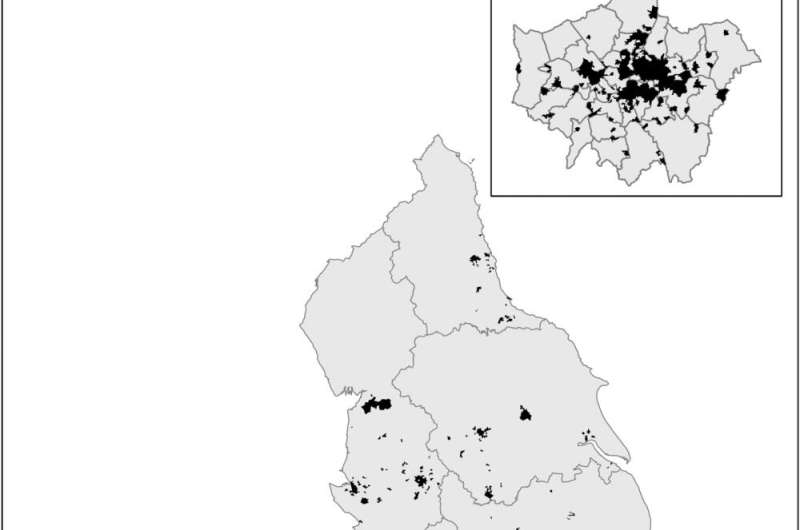English neighborhoods which have less-healthy diets estimated by modelling study

A new analysis identifies neighborhoods within England where consumption of fruits, vegetables, and sugar-sweetened beverages by adults is estimated to differ significantly from recommendations. These areas may benefit from targeted approaches to improve diet. Dianna Smith of the University of Southampton, U.K., and colleagues present the findings in the open-access journal PLOS ONE on June 23, 2021.
Previous research has employed mathematical modeling to estimate dietary habits of the adult population of England. However, finer-scale investigations are needed to reveal estimated dietary habits at the level of individual neighborhoods.
To address this need, Smith and colleagues drew on data collected in a national survey in which English adults aged 16 and over recorded all of the food and beverages they consumed over a period of four days. The researchers applied a mathematical modelling method to the data, which included matching survey participants’ demographics to that of English neighborhoods. This enabled them to estimate adults’ dietary habits in 6,791 neighborhoods across England.
The analysis found that an estimated 6.9 percent of English adults consume less than one portion of fruit, vegetables, or 100-percent juice per day, and an estimated 11.5 percent of adults drink more than 330 milliliters, or one typical can, of sugar-sweetened beverages per day. These portions differ significantly from guideline recommendations.
Certain neighborhoods had particularly low consumption of fruits and vegetables, high consumption of sugar-sweetened beverages, or both combined. Neighborhoods in this combined group were mostly in urban parts of northern England and in inner-city London—including urban areas in Birmingham, Leeds, Manchester, and Bristol, as well as the London Boroughs of Islington, Newham, Hackney, and Tower Hamlets.
These findings could help inform targeted policies and resource allocation to improve diet and health across England. In particular, the researchers say, dietary improvement efforts should prioritize parts of London, as well as urban neighborhoods in some southern coastal cities and in northern England. Targeted strategies, such as vouchers for fruits and vegetables in areas where consumption is low, could ultimately reduce health inequalities.
Source: Read Full Article


